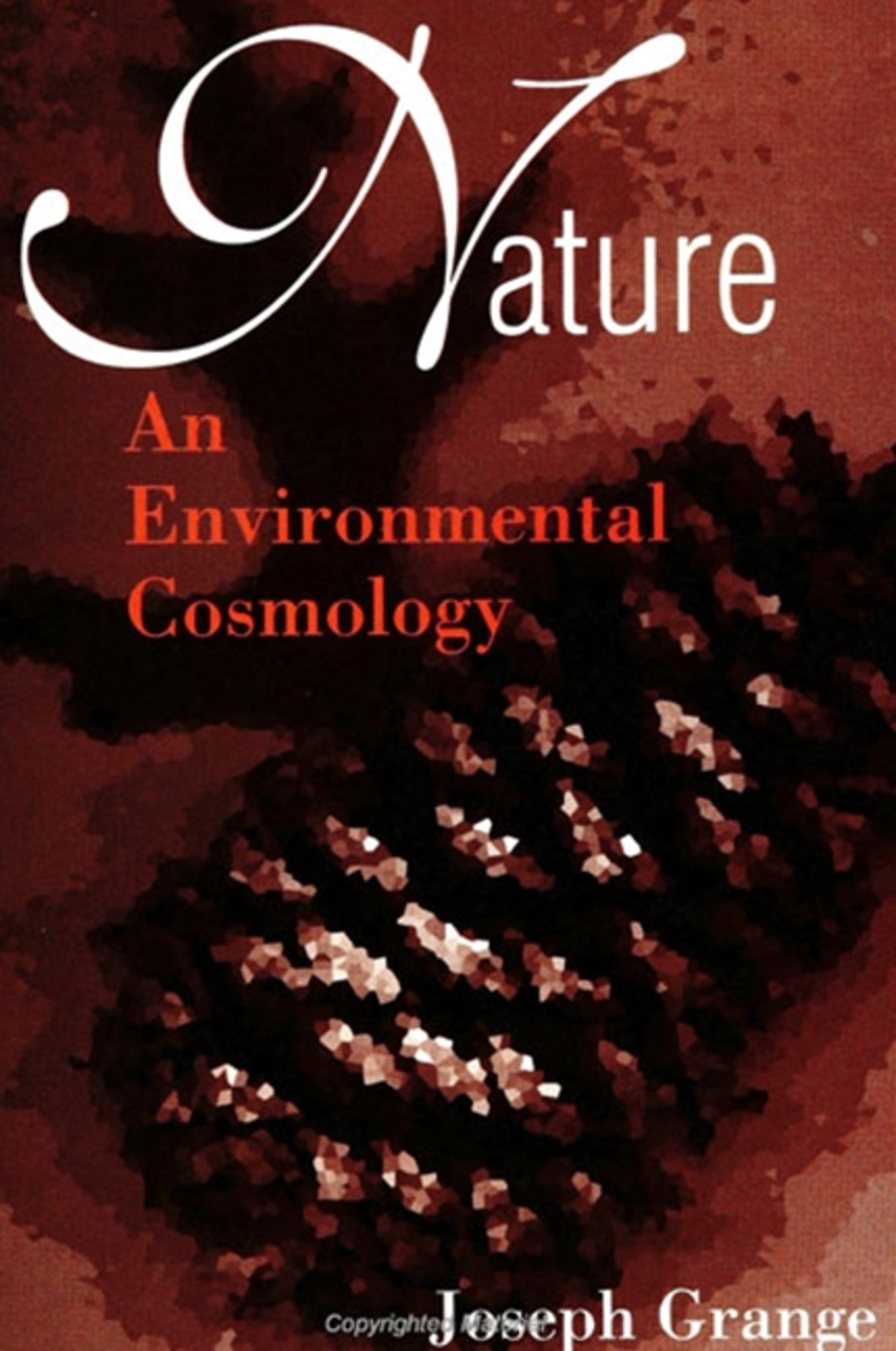We're sorry. An error has occurred
Please cancel or retry.
Nature

Some error occured while loading the Quick View. Please close the Quick View and try reloading the page.
Couldn't load pickup availability
- Format:
-
01 May 1997

Provides a set of normative measure sto assess the value of nature and proposes the new discipline of foundational ecology as a response to environmental crisis.
A breakthrough analysis of our environmental crisis, this book offers the insights of thinkers such as Plato, Lao-Tzu, Spinoza, and Whitehead to construct a set of concrete measures to estimate the value of nature. Application of these standards leads to the formation of the discipline of Foundational Ecology as the most effective educational tool for dealing with the next century's environmental crises. The real value of environmental processes comes alive through this systematic philosophy of nature. By offering a cultural critique of our idea of nature, Grange sets the environmental agenda for the next century.


"This is a brilliant work that illustrates one of its central categories, 'depth,' in its own construction. First, it presents an original and massively convincing argument that the philosophical problem of our time is not recovery of forgotten Being, as Heidegger argued, but rather the encounter with novelty in ways that overwhelm most Western philosophy. The second thing I like about this book is that the topic through which the first point is argued is ecology, in the sense of human culture relating to its environment. The philosophical cosmology Grange provides prepares the way for a simply breathtaking review and critique of major positions in ecological ethics. The third thing I like is the cosmology itself. Grange draws his inspiration from Whitehead, and the points that he makes constitute a new and fruitful reinterpretation of Whitehead himself. The fourth thing I like is that the book demonstrates that there is now a fairly wide circle of philosphers at home in speculative metaphysics and its connections with ethics and social theory—a group influenced in some way by Whitehead—and it shows that there is a real alternative to analytic philosophy and continental philosophy, one that comes out of the American tradition. A fifth strength of the book is the natural progression of its argument. It lays out a speculative system in rhetorically clear and evocative terms, treating the technical matters with precision but also with metaphoric richness." — Robert Cummings Neville, Boston University
"Of all the works in ecology and environmental philosophy that I have read, this is far and away the most interesting. To speak more accurately of Grange's book, I found it fascinating, revelatory, and, above all, fruitful. His reflections provide novel stimuli, both to imagination and to action." — David L. Hall, The University of Texas, El Paso
Preface
Abbreviations
Part One. Environmental Cosmology
Chapter One: The Cosmological Method
The Speculative Matrix
The Environmental Hypothesis
Building a Scheme of Environmental Categories
A Process Ever in Formation
Chapter Two: The Structures of Environmental Passage
Structure and Value
Normative Measure
Three Levels of Participation
Measuring the Environment
Chapter Three: A World of Feelings
The Dynamics of Environmental Value
Four Levels of Environmental Order
Environmental Moods
A Schema of Ideal Environmental Values
Chapter Four: The Human Body and Its Environmental Field
Causal Efficacy and the Legacy of the Past
Sense Perception and the Dazzle of the Senses
Symbolic Reference
Symbolic Reference and Environmental Ideals
Part Two. Nature
Chapter Five: Natural Space
The Inscape of Natural Space
The Patterns of Natural Space
The Symbolic Perception of Natural Space
The Value of Natural Space
Chapter Six: Natural Time
The Inscape of Natural Time
The Patterns of Natural Time
The Symbolic Perception of Natural Time
The Value of Natural Time
Chapter Seven: The Arrival of Life
The Inscape of Life
The Patterns of Life
The Sacred Depths of Life
The Value of Life
Chapter Eight: The Goodness of Nature
The Primacy of Aesthetics
The Principle of Plenitude
The Harmony of the One and the Many
The Good, the Fair, and the Fitting
Part Three. An Ethical Vision
Chapter Nine: Types of Environmental Ethics/A Dialectical Exchange
Three Traditions
Kohak's Phenomenological Moral Sense
Deep Ecology
The Ecocentric Model
The Biocentric Model
The Natural Humanism of Holmes Rolston
Postmodern Naturalism
Chapter Ten: A Normative Environmental Ethics
Cosmology and Moral Vision
Norms and Consciousness
Norms for Intrinsic Natural Value
Types of Instrumental Value
A Case Study
Respecting Value
Chapter Eleven: Nature, History, and Technology
Heidegger's History of Being
Whitehead's Understanding of Technology
Phusis, Techne, and the New
From Conflict to Contrast
Chapter Twelve: Foundational Ecology
Aesthetic Sensibility
Strength of Mind
A Respectful Will
Ecological Praxis
Notes
Bibliography
Index



